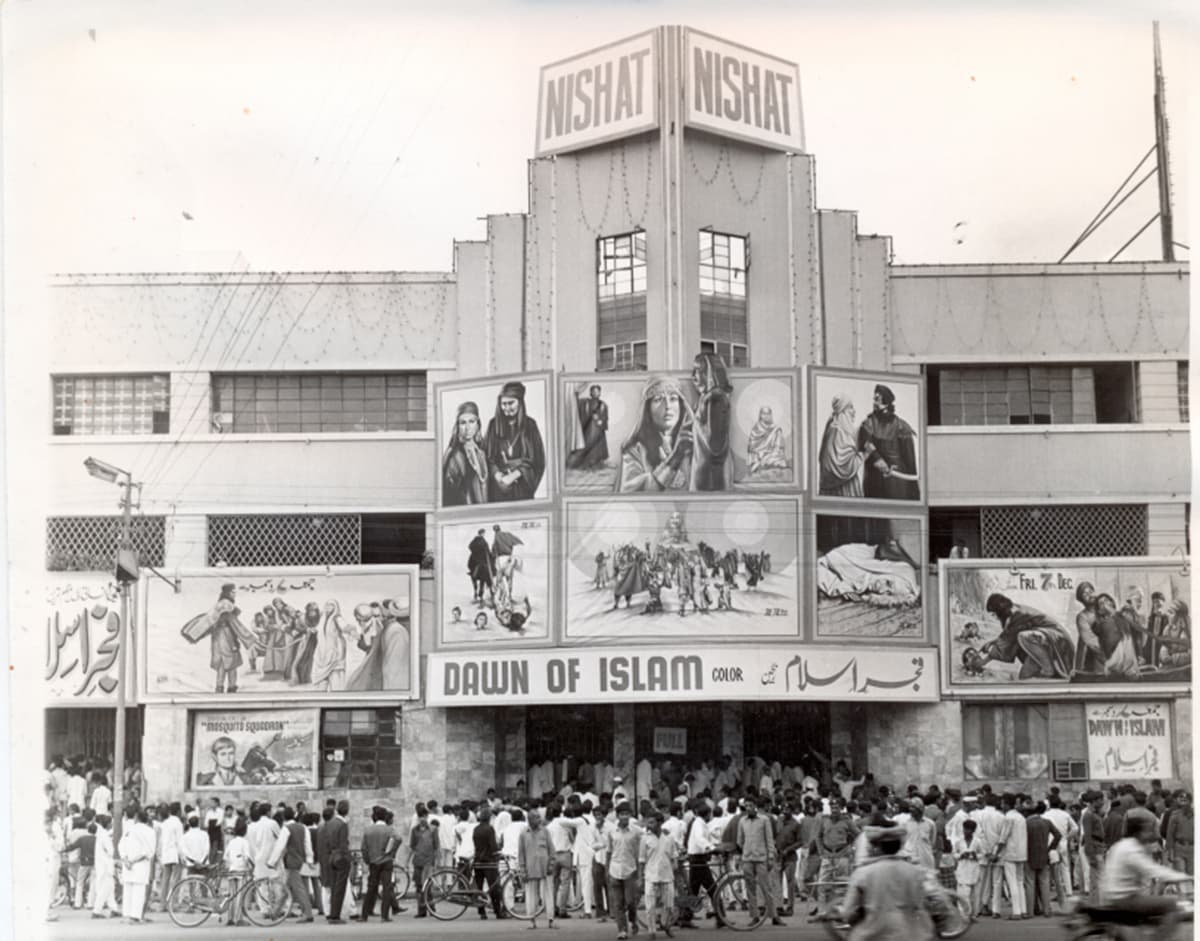On this day today: Karachi's iconic Nishat Cinema was set ablaze

In the heart of the city of lights, Nishat Cinema was long held in distinct regard as an iconic symbol of Karachi's thriving culture.
Unfortunately, on this very day in 2012 Nishat Cinema was set ablaze amidst violent protests against a purportedly anti-Islamic short-film called Innocence of Muslims that aired on YouTube. The short film was neither filmed for the big screen nor was it ever aired in Pakistan yet protestors unleashed their wrath on poor Nishat, and set ablaze six cinemas in Peshawar and Karachi besides. Nishat Cinema has not regained its previous glory and remains a charred icon of Karachi’ s vibrant past.
Situated on M. A. Jinnah Road (formerly known as Bandar Road), it was constructed during the British Raj by a Hindu businessman. He owned 2 cinema houses adjacent to each other called Krishna and Radha, named after his children. During Partition, the owner opted for newly independent India and the cinemas became evacuee properties.

Caught up in the trend to change the names of popular landmarks to Muslim-sounding names, Krishna became Nishat and Radha was renamed Naz. After Partition, the Kandawallas acquired Nishat Cinema, as it was right next to their head office in the Godrej Kandawalla building. Nishat Cinema was then re-inaugurated by Fatima Jinnah on 25th December 1947 and the first screening held on its premises was of the Indian film Doli by S. K. Ojha.

“In 1963, when the Kandawallas needed money to invest in their jeep assembly plant, Naya Daur, they sold Nishat Cinema to Yusuf and Hakim Mandviwalla for PKR 1.6 million. It was actually Jagjit Anand, a renowned film distributor, who prompted Yusuf Mandviwalla to buy Nishat Cinema, extending a loan of PKR 800,000 to cover the shortfall. "Up until 1968 Jagjit Anand was solely responsible for running the cinema,” says Nadeem Mandviwalla.

After the 1965 war Indian films were banned in Pakistan; Nishat continued to screen mostly Pakistani films till 1972. Nishat operated with flat screen technology and only when cinemascope was introduced in 1971 did the film quality significantly increase. This ushered in a period when Nishat became a pioneer in the cinema industry in Pakistan. It set the trend for the latest technologies and kickstarted the use of digital surround sound. It was a prominent and considerably up-to-date cinema that attracted the popular and the fashionable.
Refurbishments of the cinema were planned for 1971 but the release of two iconic Pakistani films, Mera Humsafar and Dil Aur Duniya pushed the renovation plans to 1972 as both films played to packed audiences for a year.
“After 1972 Nishat started playing mostly Hollywood feature films. Javed Sheikh’ s 1996 film Chief Saab ran for twenty-five weeks acquiring a silver jubilee record. The longest playing film in Nishat Cinema was Neal Israel’ s 1985 American comedy Moving Violations that ran for twenty-seven weeks,” says Nadeem Mandviwalla.
Over the decades Nishat Cinema has been a prominent part of Pakistani popular culture — it's indeed sad to see a landmark destroyed as it has.
Text by Aaliyah Tayyebi, Senior Project Manager, OHP and EFC The Citizens Archive of Pakistan. Old Nishat Cinema photographs from the archives of The Citizens Archive of Pakistan. Current Nishat Cinema photographs by ©Khaula Jamil/The Citizens Archive of Pakistan